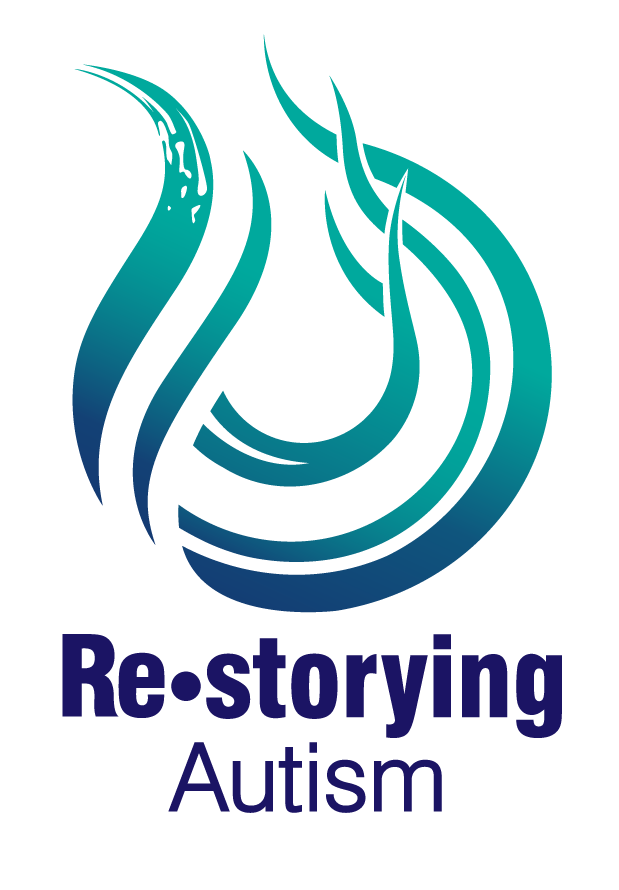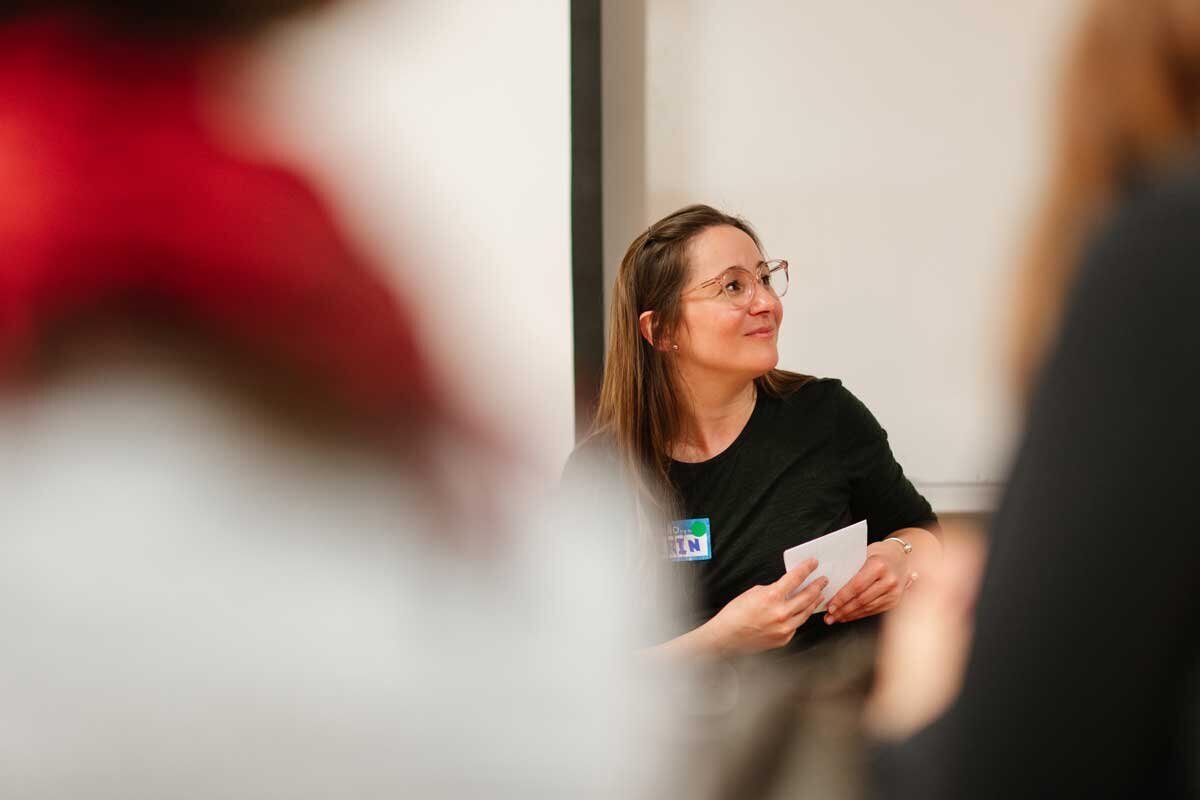
A photo of a people at work in a story making workshops. Two people talking to each other in the foreground point to a camera on a tripod.
Enacting Inclusion
About the Project
Enacting Critical Disability Communities in Education (2016-2019) was the development phase of the Re•Storying Autism in Education project. Enacting held two multimedia story making workshops in Toronto, Ontario at the School of Disability Studies at Toronto Metropolitan University in collaboration with the Re•Vision Centre for Art and Social Justice. The project brought together Autistic people, family and kin, educators, practitioners and artists to speak back to exclusionary systems and rethink systems in ways that desire the difference of Autism. Enacting was funded in part by the SSHRC Insight Development Grant 430-2016-00050.

“If difference can never be fixed or located within bounded body-subjects outside of relationships, then relationships between us become the focus of concern rather than the identification and remediation of atypicality” (Douglas et al., 2021, 14).
Selected Publications
Douglas, P., Rice, C., Runswick-Cole, K., Easton, S., Gibson, M. F., Gruson-Wood, F., Klar, E., & Shields. R. (2019). Re-storying autism: A body becoming disability studies in education approach. International Journal of Inclusive Education 25(5), 605-622. https://doi.org/10.1080/13603116.2018.1563835
Gibson, M. F. & Douglas, P.. Disturbing behaviours: O Ivar Lovaas and the queer history of autism science. (2018). Catalyst: Feminism, Theory, Technoscience, 4(2). https://doi.org/10.28968/cftt.v4i2.29579
People keep telling me it’s so important for me to share my
story. I think this is a good way to help start that process.
- Michael moon, storyteller participant
Our Goals
Goal 1
To create new knowledge about inclusion by centring the experiences and knowledge of autistic people and their/our supporters
Goal 2
To decolonize our research process and centre the perspectives and leadership of autistic women, trans autistic people, Black, Indigenous and other autistic people of colour previously excluded in autism research
Goal 3
To innovate accessible multimedia storytelling approaches in order to advance practices of inclusion
Goal 4
To transform deficit understandings of autism in education and intervene in practice.
Goal 5
To provide research training and arts opportunities for autistic and other students, artists and interested community members







